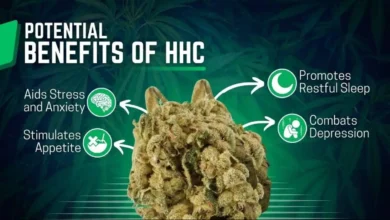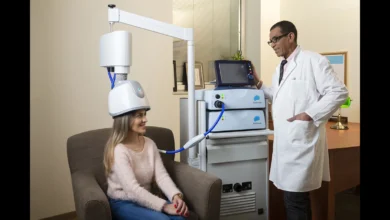Understanding Depression Treatment with Advanced Practice Nurses (APNs)

Depression is a pervasive mental health condition that affects millions of individuals worldwide. While traditional treatment methods have been effective for many, the growing demand for more personalized and accessible care has led to the emergence of Advanced Practice Nurses (APNs) as vital players in depression treatment. In this article, we will explore how APNs contribute to the management of depression, their qualifications, the treatment modalities they employ, and the significance of their role in the mental health landscape.
What is an Advanced Practice Nurse (APN)?
Definition and Scope of Practice
An Advanced Practice Nurse (APN) is a registered nurse (RN) who has acquired advanced clinical knowledge and skills through a master’s or doctoral degree program. APNs can specialize in various areas, including psychiatric-mental health, family health,depression treatment and adult health. Their advanced education and training enable them to perform assessments, make diagnoses, interpret diagnostic tests, and initiate treatment plans.
The scope of practice for APNs can vary by state and specialty. In many states, APNs have the authority to prescribe medications, conduct therapy, and manage patient care independently or collaboratively with physicians. This autonomy allows them to provide comprehensive care to individuals suffering from depression and other mental health disorders.
Specializations Relevant to Depression Treatment
Among the various specializations within APNs, Psychiatric-Mental Health Nurse Practitioners (PMHNPs) are particularly relevant to depression treatment. These professionals focus specifically on mental health issues, offering therapy, medication management, and holistic approaches tailored to individual needs. Other specializations, such as Family Nurse Practitioners (FNPs) and Adult-Gerontology Nurse Practitioners (AGNPs), may also be involved in treating depression, especially when working with patients who have comorbid conditions.
The Role of APNs in Healthcare
APNs are becoming increasingly integral to the healthcare system. They bridge the gap between patients and physicians, providing essential care in settings ranging from primary care clinics to specialized mental health facilities. Their ability to deliver personalized care has made them an invaluable resource in managing chronic conditions like depression,depression treatment where a multifaceted approach is often required.
The Growing Need for Effective Depression Treatment
Prevalence of Depression
Depression is one of the most common mental health disorders globally, affecting over 264 million people, according to the World Health Organization.depression treatment The prevalence of depression has only increased, exacerbated by factors such as economic instability, societal pressures, and, more recently, the impact of the COVID-19 pandemic. This growing number of affected individuals highlights the need for effective treatment options and greater accessibility to care.
Barriers to Traditional Treatment
Despite the availability of effective treatments, many individuals do not receive the care they need. Barriers such as stigma, lack of access to mental health services, and insufficient mental health professionals contribute to this gap. Furthermore,depression treatment traditional treatment models often emphasize medication or therapy without considering the individual’s unique context and needs, which can lead to less effective outcomes.
The Role of APNs in Addressing Barriers
APNs are well-positioned to address these barriers. Their advanced training allows them to provide comprehensive, patient-centered care that incorporates various treatment modalities. Additionally, their focus on holistic care means they can address not just the symptoms of depression, but also the underlying factors that contribute to it, such as lifestyle, social support, and coping strategies.
Treatment Modalities Employed by APNs
Psychotherapy Approaches
APNs often employ various forms of psychotherapy, commonly referred to as talk therapy.APNs often employ various forms of psychotherapy, commonly referred to as talk therapy. Two of the most widely used approaches in treating depression are Cognitive Behavioral Therapy (CBT) and Interpersonal Therapy (IPT).
Two of the most widely used approaches in treating depression are Cognitive Behavioral Therapy (CBT) and Interpersonal Therapy (IPT).
- Cognitive Behavioral Therapy (CBT): This evidence-based approach focuses on identifying and changing negative thought patterns that contribute to depression. APNs guide patients through exercises that challenge these thoughts, helping them develop healthier coping strategies. The structured nature of CBT makes it particularly effective for those with moderate to severe depression.
- Interpersonal Therapy (IPT): IPT focuses on the individual’s relationships and social functioning. APNs help patients understand how their interpersonal relationships may contribute to their depressive symptoms and work on improving communication and relationship dynamics. This therapy is especially beneficial for those whose depression is linked to life changes or social stressors.
Medication Management
In many cases, depression treatment involves medication. APNs can prescribe a range of antidepressant medications, including selective serotonin reuptake inhibitors (SSRIs), serotonin-norepinephrine reuptake inhibitors (SNRIs), and atypical antidepressants.
- Selective Serotonin Reuptake Inhibitors (SSRIs): SSRIs are often the first line of treatment for depression due to their relatively mild side effects and effectiveness. APNs carefully assess each patient’s symptoms, history, and preferences to determine the most appropriate medication.
- Serotonin-Norepinephrine Reuptake Inhibitors (SNRIs): For patients who do not respond to SSRIs or experience specific symptoms like chronic pain, SNRIs may be a better option. APNs monitor patients closely during medication trials to assess efficacy and side effects.
- Atypical Antidepressants: APNs may also prescribe atypical antidepressants for patients with unique needs. These medications work differently than traditional antidepressants and can offer relief for those who haven’t found success with other options.
Holistic and Integrative Approaches
Recognizing that mental health is intertwined with physical health, many APNs also incorporate holistic and integrative approaches into their treatment plans. This might include lifestyle modifications, nutrition counseling, and mindfulness practices.
- Lifestyle Modifications: Encouraging patients to adopt healthier lifestyles—such as regular exercise, adequate sleep, and balanced nutrition—can significantly improve mental health outcomes. APNs often work collaboratively with patients to create achievable goals that fit their lifestyle.
- Mindfulness and Relaxation Techniques: Practices such as mindfulness meditation and yoga have been shown to reduce symptoms of depression. APNs may teach patients these techniques as part of their treatment plan, emphasizing their role in stress reduction and emotional regulation.
- Support Groups and Community Resources: APNs often connect patients with support groups and community resources to enhance their social support network. This can be particularly beneficial for individuals who feel isolated due to their depression.
Building a Therapeutic Relationship
The Importance of Trust and Communication
A strong therapeutic relationship between an APN and their patient is crucial for effective treatment. Trust and open communication enable patients to share their experiences, thoughts, and feelings without fear of judgment. APNs are trained to create a safe and welcoming environment that fosters honest dialogue, which is essential for understanding the full scope of the patient’s challenges.
Individualized Treatment Plans
Each person’s experience with depression is unique, and APNs recognize the importance of personalized treatment plans. Through comprehensive assessments that consider a patient’s medical history, lifestyle, and personal preferences, APNs develop tailored approaches that resonate with individual needs. This individualized focus can enhance engagement and adherence to treatment.
The Role of Cultural Competence
Cultural competence is increasingly recognized as a critical factor in healthcare. APNs are trained to understand and respect the diverse backgrounds of their patients, allowing them to provide culturally sensitive care. This not only improves patient satisfaction but also ensures that treatment plans are appropriate and relevant to the patient’s cultural context.
Collaborative Care Models
Interdisciplinary Collaboration
In the realm of mental health, collaboration among healthcare providers is key to achieving the best outcomes for patients. APNs often work alongside psychiatrists, psychologists, social workers, and other healthcare professionals to provide comprehensive care. This interdisciplinary approach allows for sharing insights and expertise, ultimately benefiting the patient.
- Psychiatrists: While APNs can prescribe medications, they often collaborate with psychiatrists for complex cases. This teamwork ensures that patients receive the best possible medication management tailored to their needs.
- Psychologists and Therapists: APNs frequently refer patients to psychologists or therapists for specialized therapy. This collaboration allows for a comprehensive approach to treatment, addressing both medication and psychotherapy needs.
- Social Workers: Social workers can provide support related to social determinants of health, such as housing and employment. By working together, APNs and social workers can help patients navigate these challenges while managing their depression.
Community-Based Care Models
Community-based care models are becoming increasingly popular in mental health treatment. These models emphasize providing care in the community rather than traditional clinical settings, which can enhance accessibility and comfort for patients. APNs often take the lead in implementing these models, helping to reduce stigma and promote mental health awareness.
- Mobile Health Units: Some APNs operate mobile health units that travel to underserved areas, providing mental health screenings, education, and treatment. This approach makes mental health care more accessible to individuals who may not seek help otherwise.
- Telehealth Services: The rise of telehealth has transformed how mental health care is delivered. APNs can provide therapy and medication management remotely, making it easier for patients to receive care without the barriers of transportation or stigma associated with visiting a clinic.
- Peer Support Programs: Incorporating peer support into treatment plans can be incredibly beneficial for individuals with depression. APNs can facilitate connections between patients and trained peer supporters who share similar experiences, fostering a sense of community and understanding.
Challenges Faced by APNs in Depression Treatment
Stigma and Misunderstanding of Mental Health
Despite growing awareness of mental health issues, stigma remains a significant barrier. Many individuals hesitate to seek help for depression due to societal misconceptions. APNs often work to combat this stigma, providing education and resources to help patients and their families understand mental health better.
- Education and Awareness: APNs play a vital role in educating patients and the community about depression and its treatments. By providing accurate information, they help demystify mental health issues and promote understanding.
you may also read
usainfotime.com





